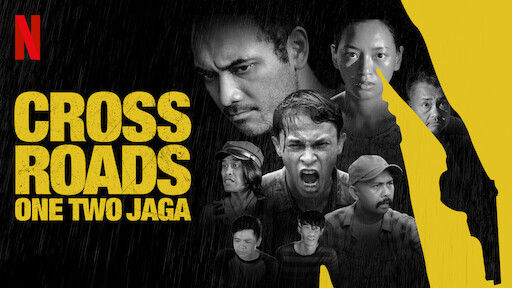Amid online flak regarding the controversial ‘Pulau’ movie trailer which contains sexual and nude elements, The Film Censorship Board of Malaysia (LPF) and Home Ministry (KDN) released a joint statement clarifying that the film Pulau is a horror movie and not a pornographic film, and that trailers are out of their jurisdiction.
“LPF and KDN’s duties are based on the Film Censorship Act 2002 [Act 620] which determines that the function of film censorship covers the publicity materials of films that are broadcast, exhibited, disseminated, screened, distributed or transmitted physically (conventionally) to the public in Malaysia, except through the Internet,” the statement read.

Source: World Feed Buzz
Our legislative history on film censorship
The British administration formed the first film censor authority in Malaya in 1917 in a way to allow people to enjoy film but at the same time censored those which could act as threats and complications for the society. LPF was then established in 1954 under the Cinematograph Films Ordinance 1952. Since 2002, it has become mandatory for films in Malaysia to be reviewed by the LPF and they have the power to give approvals, approvals with alterations and rejections.
LPF is also stationed under the Home Ministry which means members are also chosen by the Ministry itself. In fact, There is no requirement that the LPF must include representatives from different sectors of the film industry or from civil society. In fact, it appears to be a long standing practice to appoint retired public servants to the LPF. This provides a loophole as governments have the absolute power to choose whoever they want if it means to pursue a deeper and sinister purpose.

Is Film Censorship No Longer Relevant?
In modern Malaysia, the issue of film censorship has always been a debate. On one hand, a school of thought suggests that people should be allowed the liberty and right to choose and watch what they think is best for them. It is argued that LPF should not act as a moral guardian for a free society. LPF’s role is also seen to be futile as conventional films can now be streamed on other platforms beyond LPF’s reach.
According to the Freedom Film Network, there is a matrix of state institutions and other internal factors that work to influence and shape content and the work of its creators. This involves other ministers, police, religious authorities and also investors. It doesn’t sound too ideal for the stakeholders if the films involve criticizing them, no?
A famous example of this would be the movie One, Two, Jaga that seeks to criticize the long-standing culture of bribery amongst the police force in a graphic and realistic manner that received an amount of criticism from the police force as it was seen as an anti-police campaign. The producers had to go through lengthy negotiations and script cuts before the film got released 4 years later after being conceived.

Source: Netflix
Another case which revealed pressure from the government from another country is when human rights activist Lena Hendry was found guilty under the Film Censorship Act and sentenced to a fine of RM10,000 or a year in prison for screening “No Fire Zone” in a private event at the Kuala Lumpur Selangor Chinese Assembly Hall, back in 2017. This documentary has been credited for playing a key role in convincing the United Nations to launch an investigation into the alleged war crimes that took place in Sri Lanka.
The director of No Fire Zone, Callum Macrae, added: “The arrest of Lena appears to have followed pressure from the then Sri Lankan government of President Mahinda Rajapaksa, accused of command responsibility for many of the crimes exposed in the film. Rajapkasa has now gone, voted out democratically by the people of Sri Lanka. It seems grotesque that the Malaysian authorities are nonetheless continuing this inexcusable persecution of Lena."
While there is a strong argument for film censorship in the name of maintaining the social and moral fabric as well as national security, it cannot be used to block the creative scene from flourishing. Film is one of the most widespread ways to spread ideas and deliver different perspectives to create a critical thinking nation. Criticisms of ideas and mindsets sometimes can only happen by showing the reality and this will definitely not please everyone in the room. However, there can be more discussions of people from the film industry and also censorship authorities in balancing the lines of good and bad censorship.

댓글